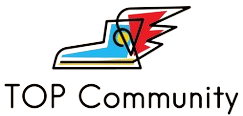In today’s data-driven world, the distinction between web scraping and collecting public data has become increasingly blurred, yet the ethical implications of each practice remain profoundly different. As organizations and individuals seek to harness the power of publicly available information, understanding the moral boundaries and legal frameworks surrounding these activities has never been more critical.
Understanding the Fundamental Differences
Web scraping involves the automated extraction of data from websites using specialized software or scripts. This process can range from simple data collection to sophisticated operations that mimic human browsing behavior. Public data collection, conversely, refers to gathering information that is intentionally made available by organizations, governments, or individuals through official channels such as APIs, databases, or public records.
The key distinction lies not merely in the technical approach but in the intent and manner of access. While both practices involve collecting publicly accessible information, the ethical considerations surrounding each method differ significantly based on factors such as consent, intended use, and potential impact on data subjects.
Legal Frameworks and Regulatory Landscape
The legal environment surrounding data collection practices varies considerably across jurisdictions. In the United States, the Computer Fraud and Abuse Act (CFAA) provides some guidance, though its application to web scraping remains contentious. European regulations, particularly the General Data Protection Regulation (GDPR), establish more stringent requirements for data processing, regardless of whether the information is publicly available.
Key Legal Considerations
- Terms of Service violations and their enforceability
- Copyright infringement concerns
- Privacy laws and personal data protection
- Anti-circumvention measures and technological barriers
- Commercial use restrictions and fair use doctrines
Courts have generally distinguished between scraping that violates explicit technical barriers and accessing publicly available information. However, the legal landscape continues to evolve as technology advances and new precedents emerge.
Ethical Principles in Data Collection
Beyond legal compliance, ethical data collection requires consideration of broader moral principles. The concept of data minimization suggests collecting only the information necessary for a specific purpose. Transparency involves clearly communicating data collection practices to affected parties, while proportionality ensures that the benefits of data collection outweigh potential harms.
The Consent Paradigm
Traditional notions of consent become complex when dealing with publicly available data. While information may be technically accessible, the original intent behind its publication may not align with subsequent collection and use. Social media posts, for example, might be public but were created with specific audiences in mind.
This challenge has led to the development of contextual integrity theory, which suggests that privacy expectations depend on the specific context in which information is shared. A professional networking profile, for instance, carries different expectations than a personal blog post, even if both are publicly accessible.
Technical and Methodological Considerations
The manner in which data collection occurs significantly impacts its ethical standing. Responsible scraping practices include implementing rate limiting to avoid overwhelming target servers, respecting robots.txt files, and avoiding the collection of sensitive personal information unless explicitly necessary.
Best Practices for Ethical Data Collection
- Implement reasonable delays between requests
- Respect website terms of service and technical barriers
- Focus on aggregate rather than individual-level data when possible
- Establish clear data retention and deletion policies
- Conduct regular audits of collection practices
Professional researchers and organizations increasingly adopt ethical review processes similar to those used in academic research, involving institutional review boards or ethics committees to evaluate proposed data collection activities.
Industry Perspectives and Stakeholder Views
Different stakeholders bring varying perspectives to the ethics of data collection. Technology companies often emphasize innovation and the public benefits of data-driven services, while privacy advocates focus on individual rights and potential for abuse. Academic researchers highlight the importance of open data for scientific advancement, whereas content creators and publishers express concerns about unauthorized use of their work.
The emergence of data cooperatives and alternative data sharing models reflects growing recognition that traditional approaches may not adequately balance competing interests. These initiatives seek to provide mechanisms for beneficial data use while preserving individual agency and creator rights.
Real-World Applications and Case Studies
Examining specific use cases illuminates the practical application of ethical principles. Academic research on social media behavior, for example, often relies on publicly available posts but must navigate questions of consent and potential harm to subjects. Similarly, price comparison services scrape e-commerce websites to provide consumer benefits but may conflict with retailers’ business models.
Journalistic Investigations
Investigative journalism frequently employs data scraping techniques to uncover matters of public interest. The Panama Papers investigation demonstrated how systematic data analysis can reveal important truths, yet raised questions about the ethics of processing leaked information.
These cases highlight the importance of considering the ultimate purpose and public benefit of data collection activities, not merely their technical legality.
Emerging Technologies and Future Challenges
Artificial intelligence and machine learning technologies are transforming both the capabilities and implications of data collection. Automated systems can now identify patterns and extract insights from vast datasets in ways previously impossible, raising new questions about consent, privacy, and the potential for discriminatory outcomes.
The Role of Algorithmic Transparency
As data collection becomes increasingly automated, the algorithms governing these processes require scrutiny. Algorithmic transparency involves making clear not only what data is collected but how it is processed and used. This principle extends beyond technical documentation to include accessible explanations of potential impacts and decision-making processes.
Developing Ethical Frameworks
Organizations seeking to establish ethical data collection practices should develop comprehensive frameworks that address both current activities and future expansion. These frameworks should include clear policies on data use, regular training for staff involved in collection activities, and mechanisms for addressing complaints or concerns from affected parties.
Multi-Stakeholder Approaches
Effective ethical frameworks often involve collaboration between multiple stakeholders, including technical experts, legal professionals, ethicists, and representatives of affected communities. This collaborative approach helps ensure that diverse perspectives are considered and that frameworks remain practical and implementable.
Recommendations for Practitioners
Individuals and organizations engaged in data collection should prioritize transparency, minimize data collection to essential purposes, and regularly review their practices against evolving ethical standards. Establishing clear policies and procedures, providing regular training, and engaging with relevant communities can help ensure that data collection activities remain ethical and socially beneficial.
The distinction between ethical scraping and responsible public data collection ultimately depends not on the technical methods employed but on the broader context of use, respect for stakeholder interests, and commitment to minimizing potential harms while maximizing legitimate benefits.
Conclusion
The ethics of scraping versus collecting public data represents a complex intersection of technology, law, and moral philosophy. As our digital society continues to evolve, the importance of thoughtful, principled approaches to data collection will only increase. Success in navigating these challenges requires ongoing dialogue between stakeholders, continuous refinement of ethical frameworks, and a commitment to balancing innovation with respect for individual rights and societal values.
Organizations that proactively address these ethical considerations will not only avoid potential legal and reputational risks but also contribute to a more trustworthy and sustainable data ecosystem that benefits all participants in our increasingly connected world.

